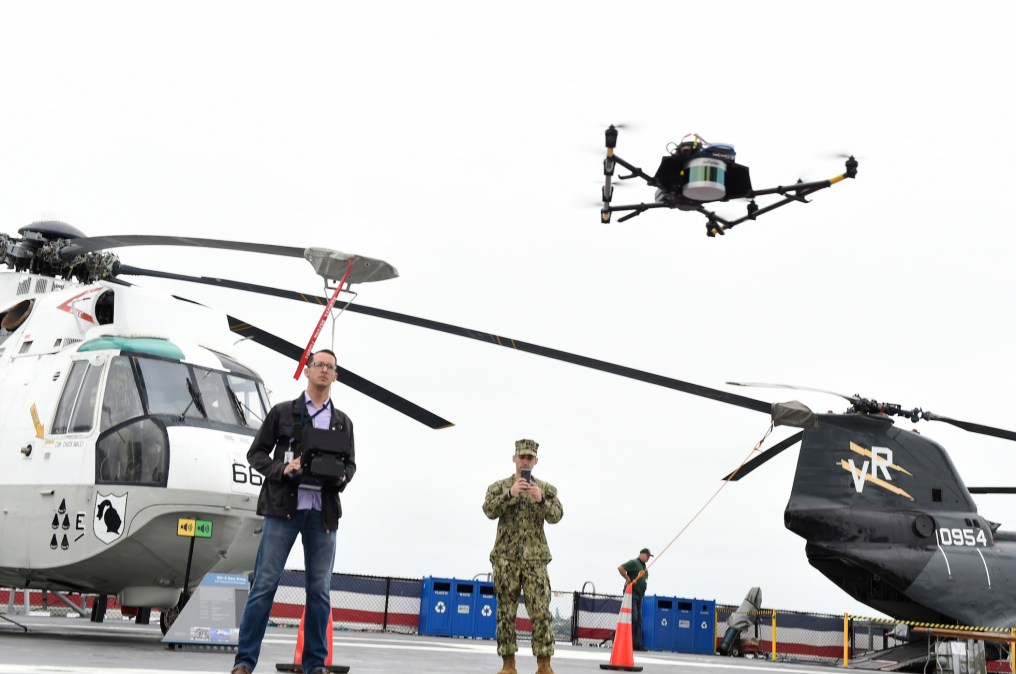GSA, Pentagon drone solicitation aims to bring performance-based contracting back

The General Services Administration’s latest solicitation for drone services is a tool intended to return government to performance-based contracting, said Administrator Emily Murphy.
Dubbed ASTRO, the solicitation establishes 10 multiple-award, indefinite-delivery/indefinite-quantity contracts for “manned, unmanned and optionally manned platforms and robotics” that the Department of Defense will use.
ASTRO represents GSA‘s first use of its 2019 National Defense Authorization Act Section 876 authority to award multiple contracts for services on an hourly rate basis, without considering price as a factor at the contract level. The Federal Systems and Integration Management Center and any DOD contracting officer granted a delegation of procurement authority (DPA) may use ASTRO.
“ASTRO is giving us a chance to partner together on unmanned aerial systems, and instead let’s look first at the most qualified companies and figure out who they are,” Murphy said during ACT-IAC’s ELC 2020 on Tuesday. “And then run a competition at the task order level, where we compete the hell out of it. We get the dollars down as low as we can at that point, but we’ve made sure we’re getting the high-quality work.”
Currently, GSA has a bad habit of pricing things it will never buy like carnival workers — three different types appearing across the agency’s schedules — which wastes procurement officials’ time and resources, Murphy said.
Similarly, the Department of the Defense identified 31 contracts for orange juice from two different vendors within one agency, as well as a commodity battery that’s price varied from 13 cents to $25 dollars across contracts, said Pentagon Chief Management Office Lisa Hershman.
In contrast, performance-based contracting helped Special Operations Command introduce next-generation radar systems, giving warfighters a better view of the battlefield, three years ahead of schedule.
“It’s really getting people thinking more along the lines of outcomes and not just a dollar figure, and don’t get me wrong those dollar figures are really important,” Hershman said. “Every dollar that we’ve saved from every reform initiative has gone back directly to the warfighter or investments such as hypersonics.”
With offers due Oct. 30, ASTRO is part of GSA and DOD’s effort, along with category management and the Contractor Performance Assessment Reporting System, to put qualifications first, Murphy said.
“We’re taking a requirement that they have, and we’re working with our FEDSIM to try and make sure that we put it in place,” Murphy said. “But it gives us both control over this new approach, so that we’re going to be able to see the results and be able to carefully manage it before we expand it.”






